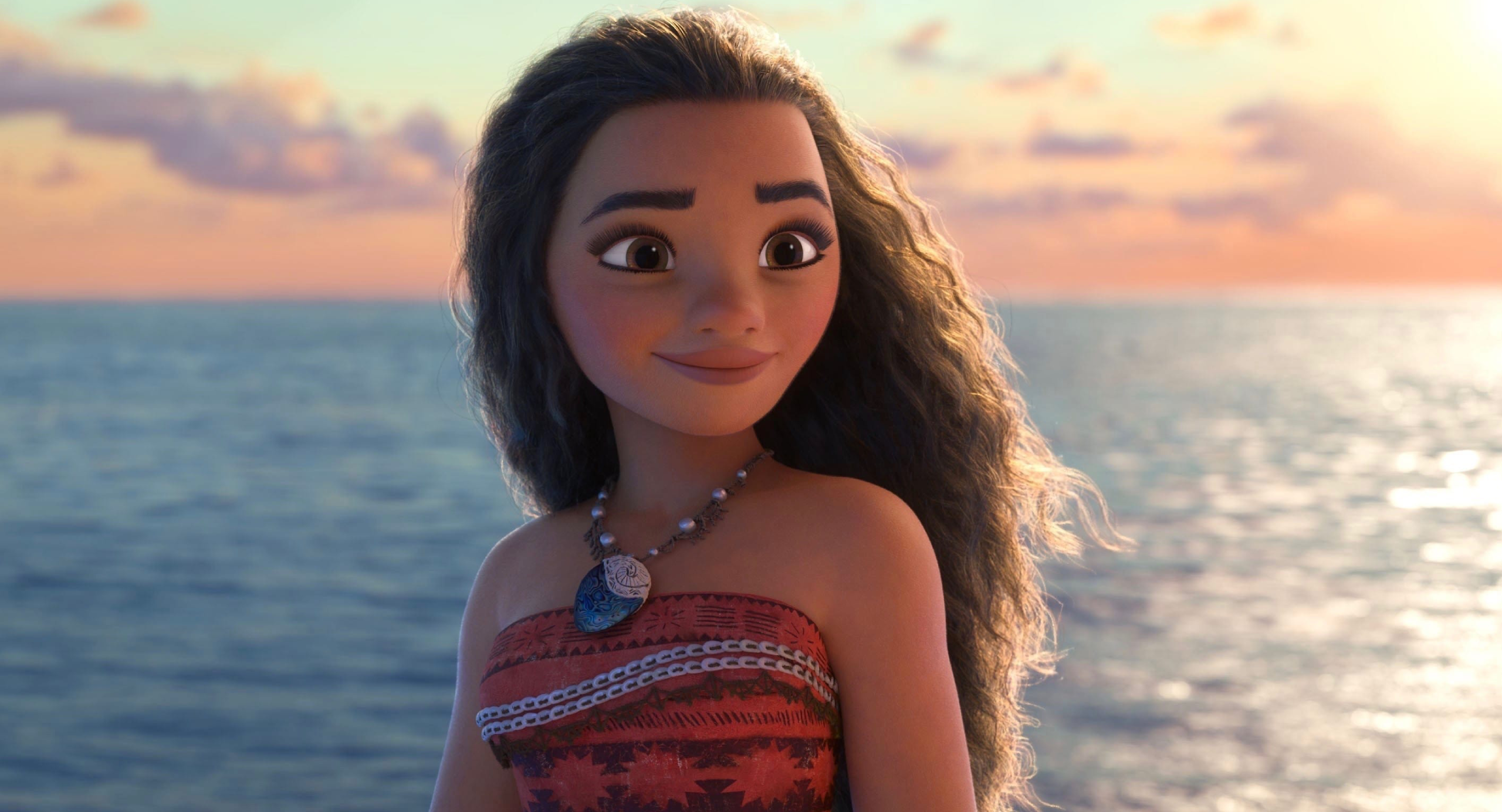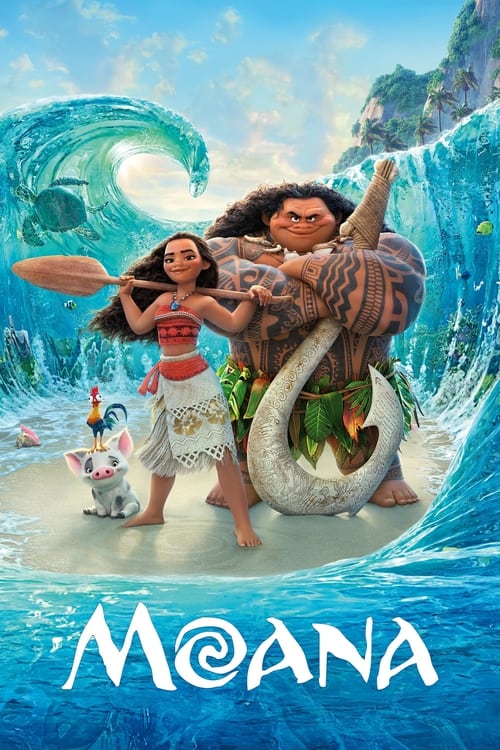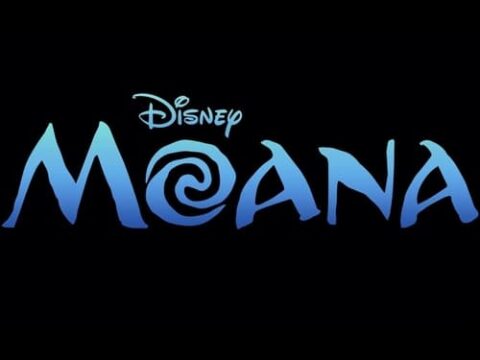Moana – Film Review
Published November 26, 2024

Disney’s Moana (2016), directed by Ron Clements and John Musker, stands as a bold departure from traditional princess narratives, plunging audiences into a dazzling Polynesian world filled with rich mythology, stunning visuals, and a memorable soundtrack. The film, lauded for its representation of Pacific Island culture and its adventurous tone, treads familiar waters narratively but succeeds in delivering a heartfelt and visually captivating tale. While it shines in many areas, it occasionally falters under the weight of its formulaic story structure.
Moana tells the story of its titular protagonist (voiced by Auli’i Cravalho), the spirited daughter of a Polynesian chief, who feels an unrelenting pull toward the ocean despite her father’s insistence that she stay within the confines of their island. When her people face a grave ecological crisis caused by a curse inflicted by the trickster demigod Maui (Dwayne Johnson), Moana defies her father’s wishes and embarks on a daring oceanic journey. Her goal: find Maui, restore the heart of Te Fiti (a goddess who created life), and save her island.
The plot’s structure is quintessentially Disney: a young hero defies authority, embarks on a transformative quest, and discovers their inner strength. While the execution is spirited and engaging, the predictable beats can feel too familiar, detracting from the novelty of its lush, cultural backdrop.
One of Moana’s standout qualities is its respectful and vibrant portrayal of Polynesian culture. Disney went to great lengths to ensure authenticity, consulting cultural experts and forming the Oceanic Story Trust to inform the film’s development. The film is steeped in Polynesian mythology, from the creation goddess Te Fiti to Maui, the shape-shifting demigod known for his mischief.
The story also weaves in themes of wayfinding and the Polynesian people’s rich seafaring heritage, beautifully encapsulated in the song “We Know the Way,” written by Lin-Manuel Miranda and Opetaia Foa’i. The film pays homage to the voyaging spirit of Polynesian ancestors while acknowledging the tensions between tradition and modernity.
However, some critiques have emerged regarding the film’s depiction of Maui, who, despite being charming and humorous, is portrayed as a flawed and arrogant figure. This interpretation has sparked debate within Pacific Island communities about the balance between cultural homage and creative liberty.
Auli’i Cravalho delivers an outstanding vocal performance as Moana, bringing warmth, determination, and depth to the character. Moana is a refreshing protagonist—a courageous and compassionate young woman driven by her convictions rather than external validation or romantic entanglements. Her journey of self-discovery is one of the film’s emotional anchors, resonating deeply with audiences.
Dwayne Johnson’s Maui is a scene-stealer, combining charm and comedic timing with a deeper emotional arc rooted in feelings of inadequacy and a desire for acceptance. His charismatic performance, coupled with his surprising vocal prowess in the catchy “You’re Welcome,” makes Maui a memorable addition to Disney’s pantheon of sidekicks and mentors.
Other supporting characters, such as the dim-witted rooster Heihei (Alan Tudyk) and Moana’s wise grandmother Tala (Rachel House), add humor and heart. Tala, in particular, serves as a spiritual guide for Moana, embodying the film’s themes of legacy and self-belief.
Visually, Moana is a triumph. The animation brings the ocean to life as a character in its own right, with mesmerizing water effects that blend realism and fantasy. The lush island landscapes, dynamic action sequences, and meticulous attention to cultural details—such as traditional Polynesian tattoos and costumes—showcase Disney’s mastery of the medium.
The character design also deserves praise. Maui’s animated tattoos, which serve as a living narrative device, add a unique layer of personality to his character. Similarly, the climactic encounter with Te Kā, a fiery lava demon, is a stunning blend of artistry and tension, culminating in one of Disney’s most visually and emotionally impactful resolutions.
The film’s soundtrack, composed by Lin-Manuel Miranda, Opetaia Foa’i, and Mark Mancina, is one of its standout features. Songs like “How Far I’ll Go” and “We Know the Way” capture the essence of Moana’s journey and the spirit of Polynesian culture. Miranda’s lyrical wit shines through in “You’re Welcome,” while Foa’i’s contributions lend an authentic Pacific Island flair to the score.
However, while the songs are undoubtedly memorable, they don’t all achieve the same level of timelessness as some of Disney’s earlier hits. “How Far I’ll Go,” while stirring, feels like a spiritual successor to Frozen’s “Let It Go,” echoing similar themes of self-empowerment but lacking the same cultural impact.
Moana explores universal themes of identity, courage, and environmental stewardship. The film’s emphasis on restoring harmony with nature resonates strongly, particularly in the context of contemporary discussions about climate change and sustainability.
The narrative also celebrates the idea of rediscovering one’s roots and the importance of intergenerational wisdom. Moana’s bond with her grandmother and her people’s legacy as voyagers serve as poignant reminders of the value of heritage and cultural pride.
At its heart, Moana is about finding one’s true calling and embracing the unknown, a message that will inspire both young and adult viewers. However, the film occasionally falters in its pacing, particularly during the middle act, where the episodic nature of Moana and Maui’s journey can feel meandering.
Despite its many strengths, Moana isn’t without flaws. The story, while emotionally resonant, adheres too closely to Disney’s formulaic approach, which can make the plot feel predictable. The humor, while effective, occasionally relies too heavily on slapstick, particularly with the character Heihei, whose antics can feel more distracting than endearing.
Additionally, some viewers may find Maui’s redemption arc underexplored, leaving his motivations and emotional journey feeling slightly rushed. The film’s resolution, while satisfying, wraps up too neatly, leaving little room for ambiguity or deeper reflection.
Moana is a visually stunning and emotionally uplifting film that celebrates the beauty of Polynesian culture and the power of self-discovery. With a compelling protagonist, a charismatic sidekick, and a memorable soundtrack, it stands as a worthy addition to Disney’s modern canon. However, its adherence to familiar narrative tropes and occasional pacing issues prevent it from achieving the timelessness of Disney’s finest works.
For all its minor shortcomings, Moana remains a vibrant and inspiring adventure that will delight audiences of all ages. Its cultural significance, combined with its breathtaking animation and heartfelt themes, ensures it will hold a special place in Disney’s legacy. While not a perfect voyage, it is a journey worth taking.

